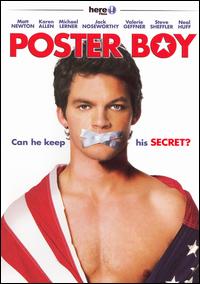Plot
The film opens with Henry Kray being interviewed by a reporter about the events about to unfold on-screen. Henry is the son of a powerful and conservative Senator from North Carolina. Senator Kray has gained a national reputation in part by attacking homosexuality. Unknown to the senator, Henry is gay.
The senator plans to kick off his re-election campaign at a luncheon at Henry's college campus and he expects Henry to deliver his introduction. Henry's sexuality is something of an open secret around campus, to the extent that the campus gay activist group has created a chart of his many sexual partners. The night before Senator Kray is scheduled to arrive, Henry has sex with Anthony, a former ACT UP activist who's drifted away from activism.
The day of the speech, Anthony is approached by a campus activist who wants to enlist his help in outing Henry. Anthony and his friend Izzie have an argument about it and Izzie (who is HIV-positive) storms off. She's hit by the limousine transporting the senator and his wife Eunice. The senator's party brings her along with them and Eunice takes a shine to her. She gives Izzie a suit and invites her along for the luncheon.
Henry invites Anthony as well, insisting that he sit at the dais with him. Henry introduces his father, who begins his speech. As the speech continues, Henry stands up, pulls Anthony to his feet and kisses him in full view of the national media, outing himself before the activists have the chance to. In the firestorm of controversy, the Senator and his team decide to spin the event by stressing that the Senator still loves his gay son. Meanwhile, one of the campus activists congratulates Anthony for outing Henry, and even though Henry decided to "out" himself, the bond of trust that had started to form between him and Anthony shatters.
The film closes with Henry summarizing the aftermath. He and Anthony never see each other again, Izzie has died of AIDS and the Senator won re-election despite, or perhaps because of, the controversy.
This page is based on this
Wikipedia article Text is available under the
CC BY-SA 4.0 license; additional terms may apply.
Images, videos and audio are available under their respective licenses.
